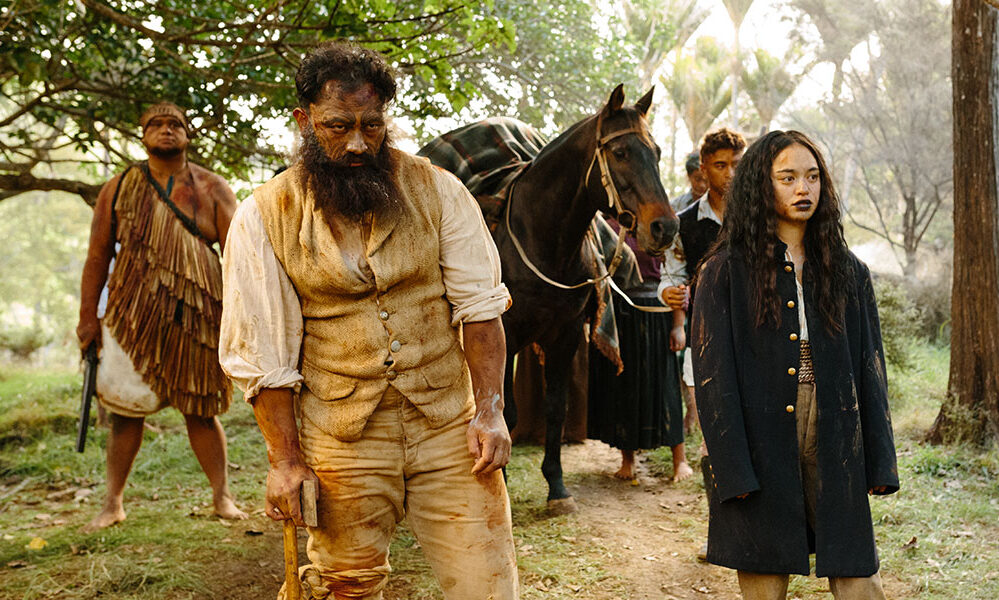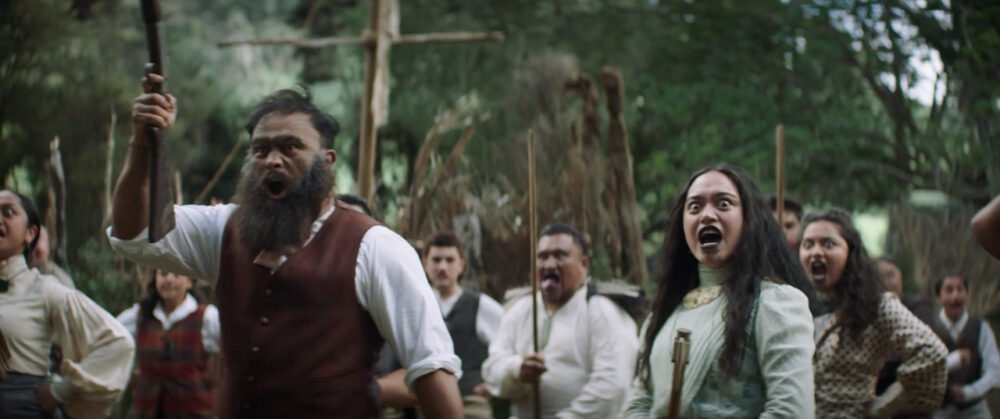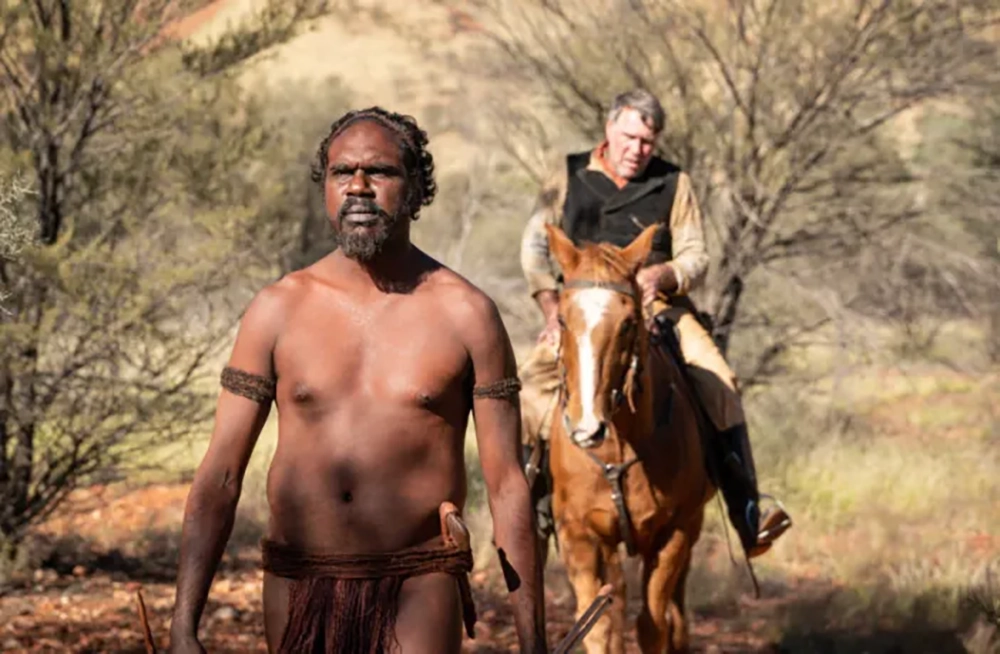A collaboration among 10 Indigenous filmmakers from Australia, Aotearoa (New Zealand), and Pasifika (Pacific Islander nations of Samoa, Tonga, the Cook Islands, Niue, Tokelau, Tuvalu, and other smaller domains); the movie combines eight stories from these filmmakers to create a singular narrative that resonates with the people.
More importantly, the film is a direct response to the 250th anniversary of James Cook’s historically celebrated voyage to Australia. Commissioned by the British government, this resulted in the colonizer’s invasion of Indigenous lands. This 90-minute response—compelling and insightful in equal measures—highlights the shared history of the people of their region. The result is a strong statement of resilience even, and especially, in the face of oppression.

The Impact of Colonization in Indigenous Culture and Identity
“We Are Still Here” begins with a couple of title cards that explain the film’s purpose.
In the late 18th century, the British Empire invaded and claimed many territories in the Pacific.
It was a catastrophic event for indigenous people.
In response to 250 years of colonization, 10 leading Indigenous filmmakers—Beck Cole, Dena Curtis, Tracey Rigney, Danielle MacLean, Tim Worrall, Renae Maihi, Miki Magasiva, Mario Gaoa, Richard Curtis, and Chantelle Burgoyne—create a cohesive collective narrative of contemporary Indigenous activism.
Starting an anthology film with rotoscope animation (the same approach Richard Linklater used in “Waking Life”) is ambitious, to say the least. However, “We Are Still Here” does just that, showing a mother and daughter fishing in a pre-dated Utopia. In this story (‘Lured’ by Danielle MacLean), the daughter reels in a big ship instead of a fish. The ominous ship, with its all-too-familiar flag, symbolizes a future that would threaten the two’s relationship. Worse, the succeeding stories after ‘Lured’ would touch upon the oppressive efforts to erase the Indigenous identity.
Whether it’s the daughter of the Tūhoe chief who challenges tribal traditions in order to support the fight against the British colony (‘Te Puuru’ by Tim Worrall and Richard Curtis), or a young graffiti artist in Naarm creating murals as an expression of activism (‘Rebel Art’ by Tracey Rigney); these stories resonate to this day. The protagonists of each story portray the struggles, pain, frustration, and ultimately the determination to rise up even stronger. And as someone from a land colonized by equally unwelcome explorers, I find the film hitting close to home.

‘We Are Still Here’: A Galvanizing Call to Action
As we noted at the onset, anthologies can be presented in a traditional format. But while it’s safe to assume that “We Are Still Here” would work just fine with simply telling one story after the other in chronological order; the filmmakers decide to interweave the stories instead.
Eschewing a linear format in favor of interweaving the stories, the film jumps from one story to the next, often leaving particular scenes hanging. Spanning a thousand years from pre-Utopia to an envisioned dystopia in the future, it’s a juggling act that at times proved a little too much.
Given the unconventional storytelling, the experience can be jarring at times, what with the stylistic differences in the filmmaking approaches. Add to this the uneven tone (from drama to lighthearted comedy and even romance), and the film could end up a mishmash of powerful ideas undermined by its half-baked execution.
Thankfully, the whole thing works, which is testament to Roland Gallois’ editing work. Complementing Gallois with the camerawork, Raymond Edwards and Eric Murray Lui were able to capture the beauty of the regions; from the expansive landscapes of the Central Australian Desert to the lush green rainforests of New Zealand.
Eight tales of indigenous strength, spanning a thousand years of kinship, loss, grief, and resilience; the film is a galvanizing call to action.
But maybe it’s more of a cry: that despite the colonialism, racism, and oppression of Indigenous people, “We are still here.”
 “We Are Still Here” had its world premiere at Sydney Film Festival in June 2022; and is among the Contemporary World Cinema selections for this year’s Toronto International Film Festival.
“We Are Still Here” had its world premiere at Sydney Film Festival in June 2022; and is among the Contemporary World Cinema selections for this year’s Toronto International Film Festival.
Support the Site: Consider becoming a sponsor to unlock exclusive, member-only content and help support The Movie Buff!

